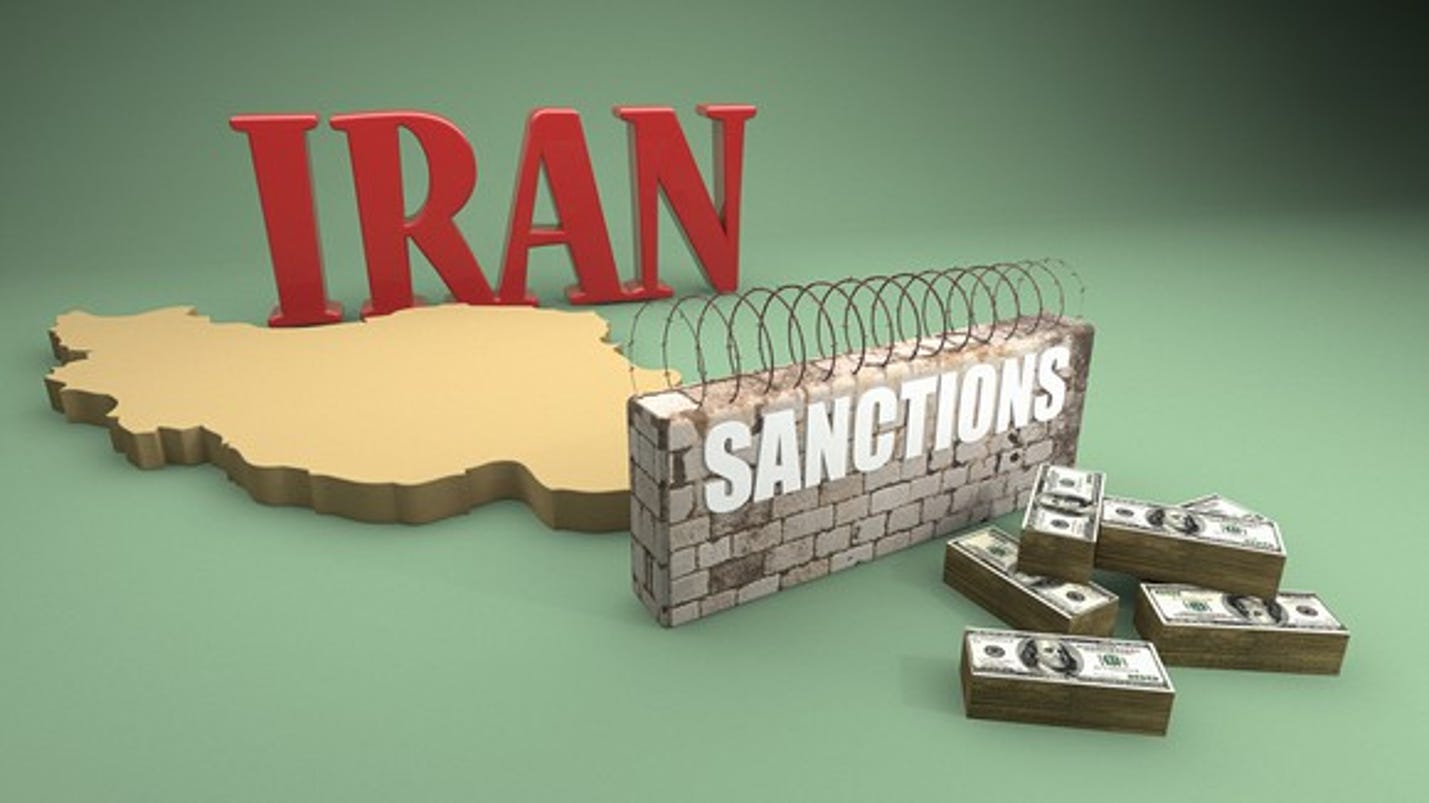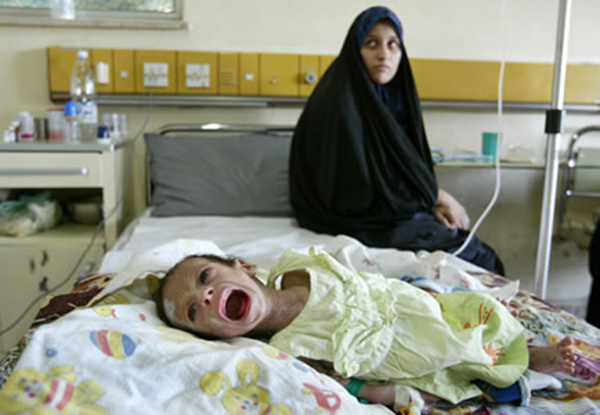
Biden Kept Trump’s “Maximum Pressure”
— Discouraging Even Legal, Humanitarian Trade
Murtaza Hussain / The Intercept
(June 13, 2023) — Amir Hossein Naroi, an Iranian boy, was only 10 years old when he died from thalassemia, an inherited blood disease. The condition is highly prevalent in the southern Iranian province of Sistan-Balochistan, where Naroi’s family lives; tens of thousands of people in the region are believed suffer from the disease.
It is not an inevitably fatal condition: Thalassemia can be treated with regular blood transfusions and oral medications designed to remove the excess of iron built up in the bodies of patients. For much of his short life, Naroi was able to get treatment. His fate, however, was decided when access to the necessary medicines inside Iran began to dry up in recent years.
In the earliest years of his life, Naroi was taking a specialized drug known as Desferal, which is manufactured by the Swiss pharmaceutical company Novartis. Starting in 2018, however, around the time that President Donald Trump launched a “maximum pressure” campaign of economic sanctions against Iran, supplies of the iron-chelating drug in Iran — along with other medicines used to treat critical diseases — started to become difficult or impossible to access inside Iran, according to local NGOs supporting patients with the disease.
By the summer of 2022, his organs failing due to complications from the disease, including damage to his organs from excess iron in his blood, Naroi passed away in a hospital, surrounded by his family.

US Sanctions Are Depriving Iranians
Of Life-Saving Medicine
According to documents obtained by The Intercept, multinational companies providing drugs for thalassemia and other conditions, as well as banks acting as intermediaries for attempted purchases, said US foreign policy was ultimately causing the problems delivering drugs to Iranians. Namely, American sanctions against Iran have made the transactions so difficult that supplies of the medicines are dwindling.
The US government is now facing a lawsuit from the Iran Thalassemia Society — an Iran-based NGO supporting victims of the disease — on behalf of Iranians with thalassemia and another inherited disease, epidermolysis bullosa, claiming that thousands of Iranian patients have been killed or injured after foreign companies producing specialized medicines and equipment for these diseases and others began cutting off or reducing their business with Iran as a result of sanctions.
While the US has given assurances that humanitarian trade with Iran will be exempted from sanctions, the lawsuit, which is currently pending appeal after being dismissed, alleges that the large-scale sanctioning of Iran’s banking sector has created a situation in which foreign companies are either unwilling or unable to do any trade with Iran at all.

US Sanctions Are Depriving
Iranians Of Life-Saving Medicine
“The American government has said that they will consider some exceptions for humanitarian aid, but in practice we have seen that there are no exceptions,” said Mohammed Faraji, staff attorney at the Iran Thalassemia Society. “We have had communications with countries that export medicines and medical equipment who have clearly told us that we cannot import medicaments to Iran because of sanctions. Banks won’t work with us, and health care companies won’t work with us. They are afraid of secondary sanctions and tell us that directly.”
Documents obtained by The Intercept bear out the picture of some companies balking at humanitarian trade with Iran because of the risk of being caught up in sanctions enforcement or because sanctions have closed off legal pathways for transacting with Iran. The communications reviewed, between European health care companies, foreign banks, and their Iranian counterparties, began in 2018. At times, the messages relayed are explicit: The companies won’t engage in trade with Iran — even to provide lifesaving medicines — due to the sanctions.
The intensity of foreign companies and banks aversion to dealing with Iranians reflects a victory of sorts for sanctions advocates, including hawkish pro-Israel advocacy groups and think tanks like United Against Nuclear Iran and the Foundation for Defense of Democracies. Thanks to their efforts, Iran today is one of the most sanctioned and isolated countries on Earth. While its government has held on to power and continues to remain aggressive and defiant despite the international pressure, life for ordinary Iranians has become materially worse under the sanctions regime, especially patients suffering from rare diseases.

“Maximum Pressure” Targets Humanitarian Aid
The Letters Between banks, drug companies, and their Iranian interlocutors show in detail how the “maximum pressure” sanctions on Iranian financial institutions have blocked even mundane transactions for medical equipment required to treat a range of conditions.
A letter in September 2018 from a Danish manufacturer of urology products, Coloplast, informed its Iranian distributor that “despite the fact that Coloplast products are not excluded by US and/or international export control sanctions, we now face a situation, where the international banks have stopped for financial transactions with Iran. Under current conditions it is not possible to receive money for products sold in Iran.” (Coloplast did not respond to a request for comment.)
Mölnlycke, a Swedish provider of specialized bandages needed to treat patients with epidermolysis bullosa, sent a letter that same year to the head of an Iranian NGO supporting patients with the disease, EBHome, commending the organization for its work helping patients with the condition.
Despite the approbation, the company said it would not be sending any more bandages to treat Iranian epidermolysis bullosa sufferers: “Due to the US economic sanctions in force Mölnlycke Healthcare have decided not to conduct any business in relation to Iran for the time being.”
A complaint from an Iranian NGO was filed against the company in Sweden in 2021 over the humanitarian impact of its cessation of business in Iran, but the complaint was rejected. (Mölnlycke did not respond to a request for comment.)
More Information: Read the complete article online at https://theintercept.com/2023/06/12/iran-sanctions-medicine/
Posted in accordance with Title 17, Section 107, US Code, for noncommercial, educational purposes.